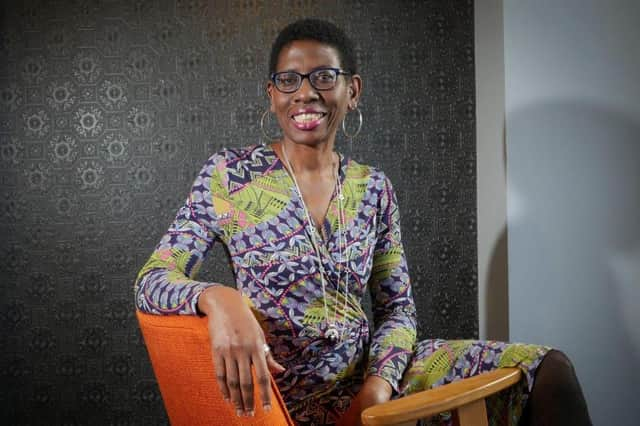University professor's Internatinal Women's Day call


The theme for International Women’s Day this year is #breakthebias.
As I contemplate what this means for women in academia and all over the world, I acknowledge that it has been two years since the most devastating crises that we have faced in our lifetimes – the Covid-19 pandemic.
Advertisement
Hide AdAdvertisement
Hide AdDuring this time many women including in academia have gone through extraordinary struggles juggling caring responsibilities for children and/or ageing


parents while still trying to maintain their full academic responsibilities of teaching, research, and administration.
It can hardly be contested that in general, women have suffered more during the pandemic than their male counterparts.
The year 2020 also brought to the fore continuing racial strife, made more poignant since the murder in the United States of the Black man George Floyd by a white police officer, an incident that was broadcast live to the entire world through social media channels.
Advertisement
Hide AdAdvertisement
Hide AdSince then, there have been many demonstrations and cries for equality and justice for black, Asian and minority ethnic communities in the United States and beyond.
As a result, many institutions worldwide including universities have been forced to reassess and to reckon with their own past and present policies and practices as they relate to issues of racial (in)justice and we have seen some incremental changes.
And today we see the outbreak of war in Europe as Russia launches a deadly invasion of Ukraine, a sovereign country, and many women and girls have been forced to flee leaving their male relatives behind to defend their homeland.
Against this rather depressing backdrop I have thought a lot about what I want to communicate to you on this International Women’s Day as unfortunately,
Advertisement
Hide AdAdvertisement
Hide Adtransformational change that redresses gender and racial inequity remains a long way off.
According to a study done by Nicola Rollock titled ‘Staying Power’ published in 2019 there were only 25 black women (of African and Caribbean heritage) who were professors in the UK at that time out of a total of over 18,000.
Apart from myself I am hard pressed to think of any black women who are professors in the field of tourism here in the UK.
This is a rather lonely road to travel and I often feel pressured to perform not only for myself but also for all the black women in my profession – I don’t want to ‘let the side down’ believing that if I fail, it would not merely be seen as a personal failure but a failure for all black women, a situation which I know does not exist for the majority white, male Professoriate.
Advertisement
Hide AdAdvertisement
Hide AdToday our university systems and many other aspects of our society value quantitative ‘Key Performance Indicators’ and dismiss qualitative measures which
are more intangible, thus disadvantaging women and especially those from Black, Asian and minority ethnic heritage who often take on additional administrative loads on committees including those devoted to ‘Equality and Diversity.’
It is still difficult to talk about race and racism at universities as many people either deny that it exists or pretend to be colour-blind, thus ignoring racial and ethnic differences which disempowers persons from Black, Asian and minority ethnic heritage.
Add to this the sexism that still proliferates at our higher education institutions and the situation appears rather dim for women from Black, Asian and
minority ethnic communities.
Advertisement
Hide AdAdvertisement
Hide AdSo, if we want to #breakthebias and disrupt systems that disadvantage women from Black, Asian and minority ethnic groups then we should reject a deficit model which focuses on blaming these women.
We must tackle this inequity from all fronts – the personal, the institutional and societal.
Finally, I call on women from Black, Asian and minority ethnic heritage to be fearless – do not be afraid to speak out despite often being shut down.
While this can often be exhausting, I believe it is necessary as it were to respectfully ‘speak truth to power’ in your own institutions.
Advertisement
Hide AdAdvertisement
Hide AdBeing fearless means adhering to your own values as a woman academic while still being open to innovative ideas and new ways of thinking. Being fearless also means not being afraid to apply for promotion or desired positions – we always feel that if we don’t tick every single criterion then we should not apply for a new role or a promotion.
You don’t have to tick every box! You don’t have to feel pressured to speak for your entire community.